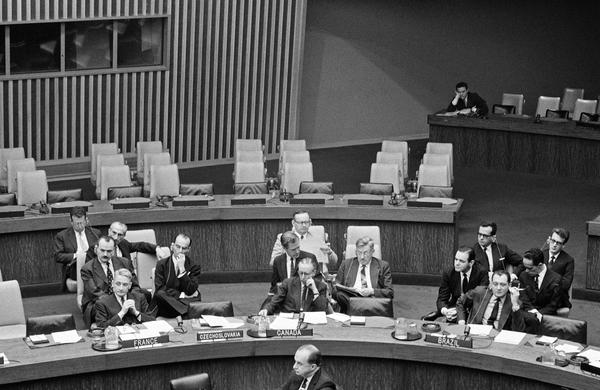Institutions
The Space Board is under the Scientific and Technical Subcommittee and the Legal Subcommittee, all members of the Owner The country is composed. The Committee and two subcommittees held a session each year, reviewed the issue of outer space proposed by UN General Assembly; the outer space reports and issues raised by Member States. The meeting generally was held in the first half of the year in order to submit reports, recommendations and resolutions to the United Nations General Assembly in the second half of the year. The Space Commission and its two subcommittees made decisions in conjunction.

Function
The Science and Technology Subcommittee mainly deliberately reviewed and explored the relevant scientific and technological issues related to the use of space-related access, promoting the international cooperation and application of space technology; the legal subcommittee mainly considered and The research and peaceful use of legal issues arising from the outer space, and the relevant legal documents and draft conventions were developed. The Space Commission mainly considered the work report of the two subcommittees and the general space issues that were not reviewed by the Subcommittee, and made decisions on the work of the Committee and filed reports and recommendations to the United Nations General Assembly.
The OSE has been submitted to the United Nations General Assembly since its establishment in 1959, has been submitted to the United Nations General Assembly since its establishment. Three Declarations are "The Legal Principles Declaration" (1963) (1963), "International Cooperation on Exploration and Utilizing Outer Space, and Promoting the Welfare and Interests in all countries, and especially considering the development National Required Declaration "(1996)," Space Millennium: Vienna Declaration on Space and People "(1999); three sets of principles as" principles that countries use artificial earth satellite to conduct international direct TV broadcasts "(1982 "Principles on remote sensing from outer space" (1986), "Principles on the use of nuclear power sources in outer space" (1992); five international treaties are "about exploration and utilization of countries including moon and other celestial bodies The Principles of Inner and External Space Activity (1967), "About Aviation of Astronauts, Sending Back to Astronauts and Sending Objects in Overseas" (1968), "International Responsibility Convention on the Damage of Objects (1972), "Convention on the Registration of Outer Space Objects" (1975) and "Guiding the Agreement on the Activities of States in Moon and Other Tasher" (1979), the above five treaties have taken effect. Events
The regular activities of the Oversiced Committee include: research and promotion of space disaster reduction, telemedicine, distance education, and weather, communication, navigation, direct broadcasting and remote sensing earth resources, etc. International cooperation between various satellites; organizing research conferences between international, regional and regional, and workshops and workshops; promoting intelligence exchanges in outer space research. In addition, cooperation with United Nations Space Applications with United Nations FAO, UNESCO, European Space, International Aviation Federation, International Space Law Society, etc., technical and academic exchange activities; through United Nations Development Program to assist countries Applies spatial technology to the technology required for economic and social development. The United Nations Conference was held in Vienna in Vienna in Vienna in August 1968, held a second outer space in Vienna in August 1982 in Vienna in August 1982. The General Assembly, held the third space meeting in July 1999. The Ownership Committee's focus is the implementation of the recommendations of the Third Space General.
According to UNPMESISSION, UN decided to establish a Disaster Management and Emergency Weekly Information Platform (UN-SPIDER, United Nations Platform for Space-Based Information for Disaster Management and Emergence Response). The platform is designed to enable all countries and related international and regional organizations to generally obtain various types of space-based information and services related to disaster management, providing support for the entire disaster management cycle. According to this scenario, the Vienna headquarters also establishes two office in Bonn and Beijing. The Bonn Office was established in October 2007. The Chinese government attaches great importance to the establishment of the Beijing office, providing a large number of manpower, material resources, is working with the final stage of the United Nations Division, and strives to make Beijing office to work early.
